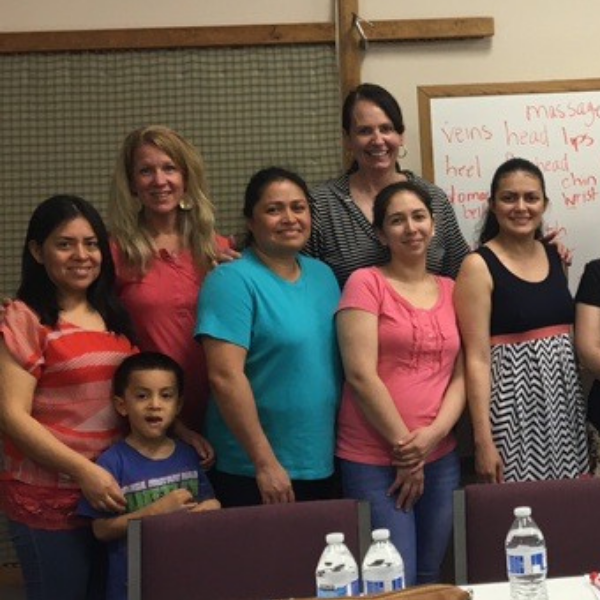The tug to get involved with immigrants in my community came from a deep desire to experience other cultures, to be connected to people, and to use the gifts God has given me.
I grew up in a family that traveled a lot but also had deep roots in our Mennonite community in Pennsylvania. We were taught the virtue of serving others, of listening to and identifying needs, of respecting another’s culture and way of life, and of always helping those with the least in society. I grew up knowing that we were “privileged” and that God wanted us to use what He’d given us to bless others. My parents modeled that, not with obligation but with joy. The ability to sacrifice was a gift.
Africa always intrigued me, and I imagined that someday I would move there to work in an orphanage. A part of that dream became a reality when we adopted our first son from Ethiopia in 2010. Unbeknownst to me, adopting Daniel also resulted in falling in love with the Ethiopian culture and people, which has indelibly become a part of the fabric of our family. I have traveled back several times over the last decade, and we added a teenager from there to our family as well.
Ben spoke no English, and his early safety net in American was all the Ethiopian food, music, and shows he could absorb. As much as he envisioned America to be the “land of opportunity” and a family to be his savior, he found everything here to be foreign, scary, and uncomfortable. He jumped into public school where he was placed in ESL classes with unsympathetic teachers who commanded: “speak English!”
We struggled to help him not only communicate but also work through trauma, understand “family,” and the reality that life in America is hard. He experienced racism and name-calling from his peers at our predominantly white school. We glimpsed how difficult it was for him and were always ready to advocate on his behalf. At the same time, we realized how difficult it must be for other students in his ESL class who do not go home to English-speaking parents.
This realization that started with two international adoptions resulted in me seeing the need to be proximate to those on the margins right where I lived. In traveling across the globe to Africa multiple times to grow our family, God allowed me to see immigrant neighbors right down my street.

I have since read many books detailing the experience of immigrants who “choose” to come to America, and I recognize the complexity of reasons, the danger involved, and the brokenness of a system. However, people are not a system. When immigrants are mentioned in the news, it is in regard to border security and the threat they pose to “us.”
I do not live near any border and the immigrants I see and now know are just trying to live normal lives. They are “us.” They work incredibly hard, pay taxes, go to church, love their neighbors, and value their lives here. By and large, their main priority is for their children to have a future that is free of violence, poverty, and despair. Sadly, they accept that America is not “theirs” and that they may be “guests” here for as long as they are careful and remain hidden.
Being a woman of welcome in my community has meant simply extending a hand and inviting people out of the shadows. It’s required nothing of me but to be a safe person they can trust and rely upon. It has meant being the type of friend I want to have, especially if I was in their shoes.
It means going to check on the price of a car or apartment rental because there is a risk that my friends will be treated unfairly. It means helping out with childcare, celebrating birthdays, swapping recipes, sharing meals, and taking long walks together.
The deeper I grow in these relationships, the more I feel that being a woman of welcome also means advocating for a better system. It means changing laws so that citizenship isn’t required to get a driver’s license. It means shining a light on unlawful racial profiling by police of drivers in immigrant communities. It means learning about and helping my immigrant friends understand their rights. It means speaking out against family separation and unethical practices at detention centers. And it means seeking and demanding a path to citizenship for people who are the most “American” I know because they chose it and would do anything to belong to it—despite how it treats them.

 This resource answers the most common questions Christians have about immigration and equips you to engage conversations with biblical clarity, truth, and grace.
This resource answers the most common questions Christians have about immigration and equips you to engage conversations with biblical clarity, truth, and grace.